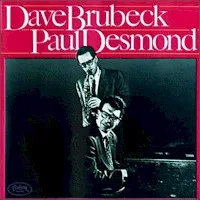Album: Presents “West Coast Sessions!” Volume 1: Sonny Stitt Disc 1
Styles: Saxophone Jazz
Year: 2017
File: MP3@320K/s
Time: 67:43
Size: 156,3 MB
Art: Front
(6:40) 1. Scrapple From The Apple
(6:30) 2. Wee
(8:40) 3. Bernie's Tune
(8:44) 4. How High The Moon
(5:56) 5. Walkin'
(6:07) 6. Groovin' High
(7:23) 7. Bernie's Tune (Take 1)
(6:42) 8. Bernie's Tune (Take 2)
(4:45) 9. Wee (Take 1)
(6:11) 10. Groovin' High (Alternate Take)
Album: Presents “West Coast Sessions!” Volume 1 Sonny Stitt Disc 2
Time: 42:31
Size: 98,1 MB
( 9:35) 1. Atlas Blues
(11:27) 2. Lester Leaps In
( 4:59) 3. Autumn In New York
( 5:35) 4. My Funny Valentine
( 4:55) 5. Lover Man
( 5:57) 6. Imagination
Styles: Saxophone Jazz
Year: 2017
File: MP3@320K/s
Time: 67:43
Size: 156,3 MB
Art: Front
(6:40) 1. Scrapple From The Apple
(6:30) 2. Wee
(8:40) 3. Bernie's Tune
(8:44) 4. How High The Moon
(5:56) 5. Walkin'
(6:07) 6. Groovin' High
(7:23) 7. Bernie's Tune (Take 1)
(6:42) 8. Bernie's Tune (Take 2)
(4:45) 9. Wee (Take 1)
(6:11) 10. Groovin' High (Alternate Take)
In 1977, saxophonist Art Pepper was approached by Japanese label Atlas about possibly doing some recording. Pepper, then under contract to the Fantasy/Galaxy label, was obliged to find a work-around and decided to appear as a sideman on the recordings, bringing on various "headliners" to release the albums under. For the fourth and fifth Atlas albums, Pepper brought in saxophonist Sonny Stitt, with whom he had performed but never recorded. Omnivore's 2017 reissue of those sessions, Art Pepper Presents West Coast Sessions, Vol. 1: Sonny Stitt, brings this period of Pepper's career into sharp focus with liner notes from producer and Pepper's then wife and manager Laurie Pepper. Here, we get both albums, originally released in 1980 as Groovin' High: Sonny Stitt & His West Coast Friends and Atlas Blues: Blow! & Ballade!. We also get a handful of previously unissued alternate takes. The first sessions (Groovin' High) feature Stitt and Pepper backed by pianist Lou Levy, bassist Chuck DeMonico, and drummer Carl Burnette. Together, they fly through a set of brightly delivered, well-worn bop standards including a piercingly assured take on "Walkin," with their dual altos slicing through the opening melody. However, while there is some fine playing by all involved, the Groovin' High cuts sound somewhat routine in comparison to what is to come. The real discovery here are the Atlas Blues dates that found Pepper conscripting legendary West Coast pianist Russ Freeman along with bassist John Heard and drummer Burnette. A longtime associate, Freeman had recorded several times before with Pepper in the '50s, appearing on such albums as Surf Ride, Mucho Calor, and Modern Art. By the '70s, Pepper's open-minded ear for post-John Coltrane harmonics, not to mention years of hard living, meant that he wasn't particularly inclined to try and re-create his tender '50s style. His playing on these dates is typical of his latter-period, with vigorous in-the-moment solos that seem to flow directly out of his psyche, like a cubist bop haiku one minute and a mangled blues aside the next. However, with Freeman at his side, Pepper sounds warmly engaged and their chemistry evokes wild hope of those early West Coast years. Ultimately, on both sets, it's the juxtaposition between Stitt's seamless bop flow and Pepper's thoughtful, bluesy reticence that remains magical. ~ Matt Collar https://www.allmusic.com/album/art-pepper-presents-west-coast-sessions-vol-1-sonny-stitt-mw0003009536
Personnel: Tenor Saxophone – Art Pepper, Sonny Stitt; Drums – Carl Burnett; Piano – Lou Levy, Russ Freeman
Personnel: Tenor Saxophone – Art Pepper, Sonny Stitt; Drums – Carl Burnett; Piano – Lou Levy, Russ Freeman
Album: Presents “West Coast Sessions!” Volume 1 Sonny Stitt Disc 2
Time: 42:31
Size: 98,1 MB
( 9:35) 1. Atlas Blues
(11:27) 2. Lester Leaps In
( 4:59) 3. Autumn In New York
( 5:35) 4. My Funny Valentine
( 4:55) 5. Lover Man
( 5:57) 6. Imagination
Presents “West Coast Sessions!” Volume 1 Sonny Stitt Disc 2




















